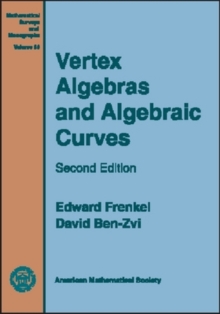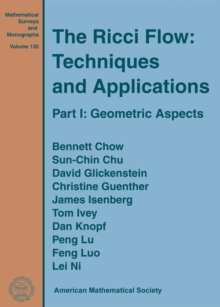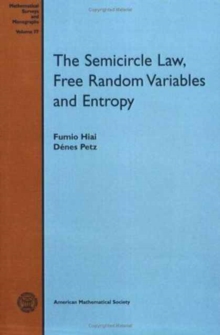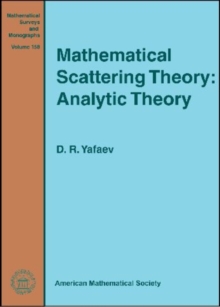
Representations of Algebraic Groups Paperback / softback
Part of the Mathematical Surveys and Monographs series
Paperback / softback
- Information
Description
Back in print from the AMS, the first part of this book is an introduction to the general theory of representations of algebraic group schemes.
Here, Janzten describes important basic notions: induction functors, cohomology, quotients, Frobenius kernels, and reduction mod $p$, among others.
The second part of the book is devoted to the representation theory of reductive algebraic groups and includes topics such as the description of simple modules, vanishing theorems, the Borel-Bott-Weil theorem and Weyl's character formula, and Schubert schemes and line bundles on them.
This is a significantly revised edition of a modern classic.
The author has added nearly 150 pages of new material describing later developments and has made major revisions to parts of the old text.
It continues to be the ultimate source of information on representations of algebraic groups in finite characteristics.
The book is suitable for graduate students and research mathematicians interested in algebraic groups and their representations.
Algebra, as a subdiscipline of mathematics, arguably has a history going back some 4000 years to ancient Mesopotamia.The history, however, of what is recognized today as high school algebra is much shorter, extending back to the sixteenth century, while the history of what practicing mathematicians call ""modern algebra"" is even shorter still.
The present volume provides a glimpse into the complicated and often convoluted history of this latter conception of algebra by juxtaposing twelve episodes in the evolution of modern algebra from the early nineteenth-century work of Charles Babbage on functional equations to Alexandre Grothendieck's mid-twentieth-century metaphor of a ""rising sea"" in his categorical approach to algebraic geometry.
In addition to considering the technical development of various aspects of algebraic thought, the historians of modern algebra whose work is united in this volume explore such themes as the changing aims and organization of the subject as well as the often complex lines of mathematical communication within and across national boundaries.
Among the specific algebraic ideas considered are the concept of divisibility and the introduction of non-commutative algebras into the study of number theory and the emergence of algebraic geometry in the twentieth century.The resulting volume is essential reading for anyone interested in the history of modern mathematics in general and modern algebra in particular.
It will be of particular interest to mathematicians and historians of mathematics.
Information for our distributors: Co-published with the London Mathematical Society beginning with Volume 4.
Members of the LMS may order directly from the AMS at the AMS member price.
The LMS is registered with the Charity Commissioners.
Information
-
In Stock - low on stock, only 1 copy remainingFree UK DeliveryEstimated delivery 2-3 working days
- Format:Paperback / softback
- Pages:576 pages
- Publisher:American Mathematical Society
- Publication Date:30/08/2007
- Category:
- ISBN:9780821843772
Other Formats
- PDF from £18.00
- EPUB from £37.39
- Hardback from £86.19
- Paperback / softback from £41.62
Information
-
In Stock - low on stock, only 1 copy remainingFree UK DeliveryEstimated delivery 2-3 working days
- Format:Paperback / softback
- Pages:576 pages
- Publisher:American Mathematical Society
- Publication Date:30/08/2007
- Category:
- ISBN:9780821843772



